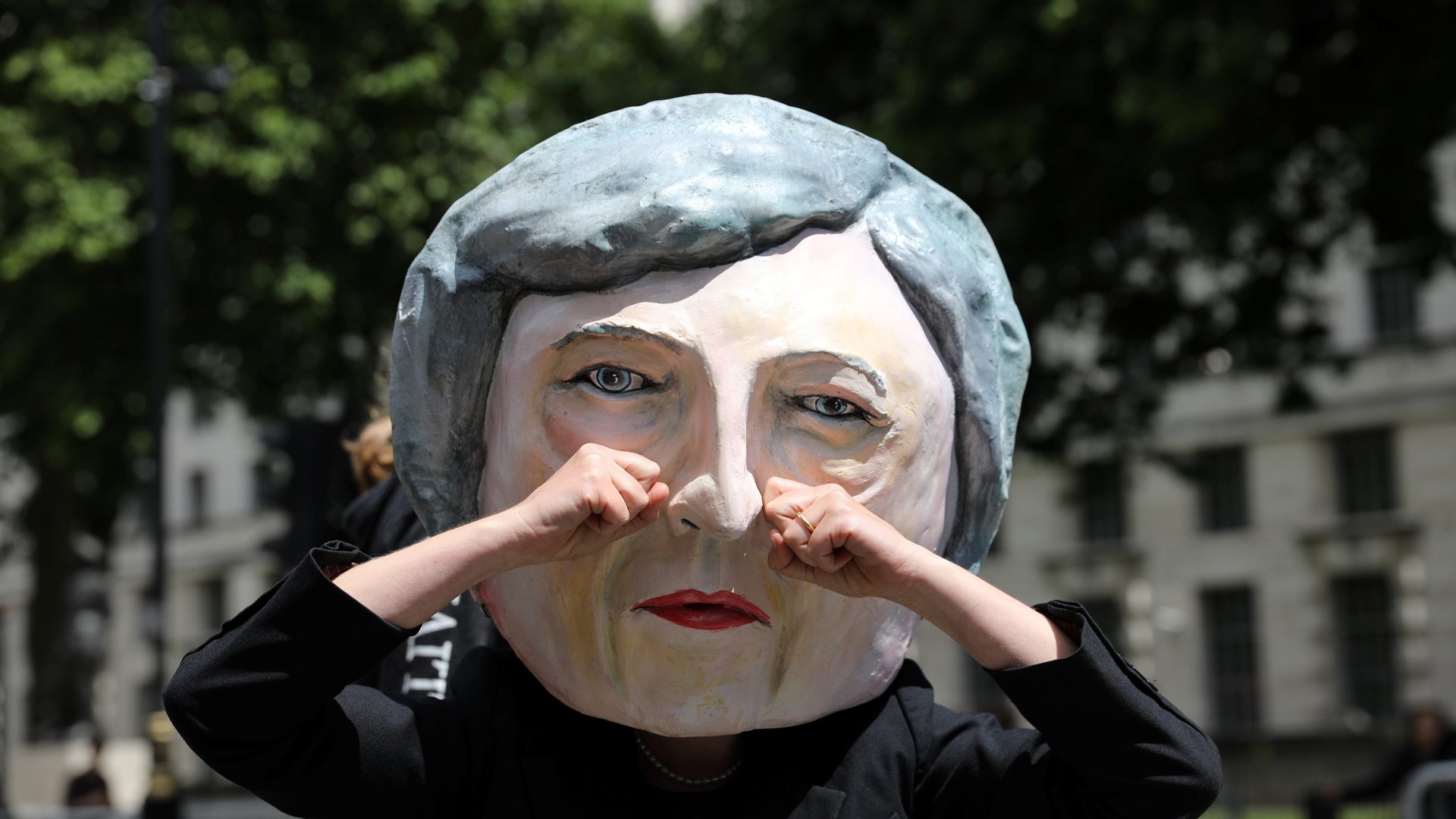What is a hung parliament?
The results of the UK election on June 8 are in and the results are astounding.


The results of the UK election on June 8 are in and the results are astounding.
The voters rebuked UK prime minister Theresa May, who had called a snap election on April 18 in a bid to strengthen her hand in the run up to the Brexit negotiations. At the time, she had a 20-point lead in the polls. Instead her Conservative party lost its overall majority in Parliament, which requires a minimum of 326 seats in the 650-seat chamber.
That means Britain now has a hung parliament, in which no single party has an absolute majority.
Are hung parliaments common?
No. It has happened only twice in the past century, in 1974 and 2010, though governments that were elected with a majority have also lost it through defection.
The reason is Britain’s first-past-the-post electoral system. Each seat in Parliament represents a constituency (a district). A party wins the seat only if it gets the most votes in that constituency. This can produce strange results. In the 2015 election, for instance, the Scottish National Party got only 4.7% of the national vote but 56 of the 650 seats—because its voters were all in thinly populated Scotland. By contrast, the pro-Brexit UK Independence Party got 12.6% of the vote but only one seat.
What happens in a hung parliament?
Since no party has an absolute majority to form a government, there are two options. The first is that two or more parties form a coalition government. The second is that one party (usually the largest) forms a minority government, in which it relies on the support of other parties to pass bills on an ad-hoc basis.
In a coalition, the parties must reach a compromise on their governing agenda. In a minority government, the ruling party can pursue its own agenda but has to reach compromises on each piece of legislation and is under constant threat of no-confidence motions in Parliament that could unseat it.
What is a coalition government?
Coalition governments are common in countries with a proportional-representation system, where parties get seats according to their share of the national vote. In countries like Germany, Belgium, and the Netherlands, parties usually fail to win enough seats in parliament to govern on their own. Negotiating an alliance with other parties to form a government can take months.
However, the last time Britain had a hung parliament, in 2010, the Conservatives formed a coalition with the Liberal Democrats just five days after the election was called, giving the Lib Dems their first real taste of power.
What’s the likeliest outcome?
May has announced that she has come to an arrangement with the small Northern Irish Democratic Unionist Party, which won 10 seats, giving them a combined 328—just enough to pass legislation. Technically it will be a Conservative minority government rather than a Conservative-DUP coalition, but May will rely on the DUP’s support for getting bills passed. May has already been to Buckingham Palace to get the Queen’s approval for this arrangement.
Should the deal break down, May could seek support from other small parties—the Liberal Democrats and the Scottish Nationalists—but they will be considerably more hostile, as both are opposed to Brexit.
What will that mean for government policy?
Some fear May’s government will have to make concessions to the ultra-conservative DUP, which is opposed to abortion and same-sex marriage and is skeptical about climate change.
It will also complicate Brexit negotiations with the EU, which Britain has slightly less than two years to complete and were already going to be very tortuous.
Finally, because of the added uncertainty it creates around Brexit, this election result is “perhaps the worst possible outcome for the pound, at least when it comes to the Brexit issue,” Steve Barrow, a strategist at Standard Bank, said.
(Read more: The “worst possible” UK election result has traders searching for precedents about how far the pound may fall)
What happens next with Brexit?
The official start of Brexit negotiations are due to begin on June 19. Whoever is the prime minister by then is unlikely to have a strong parliamentary mandate. Some European officials have hinted that the political turmoil in the UK may warrant a delay in the talks. Most obviously, if no government is formed by the scheduled start of talks, there will be no government leader to negotiate with.
Aamna Mohdin, Eshe Nelson, Akshat Rathi, and Elisabeth Ponsot contributed to this report.